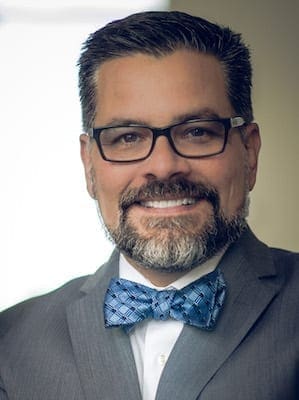Growing up in Oklahoma, Richard Rodgers and Oscar Hammerstein’s songs were always dancing in our heads. One song that always seemed to greet my waking hours was “Oh, What a Beautiful Mornin’.”
Walking into Walter Reed Elementary School in Tulsa, I would whistle into existence that bright golden haze on the meadow and the corn rising as high as an elephant’s eye.
Whistling into class one morning, one of my teachers overheard me. She commented on my cheery tune, “What a great song, and what a great way to look at life.”
Somewhat perplexed, I asked what she meant.
“Every day, we wake up to a fresh morning filled with possibilities to do good and make a difference,” she responded. “Indeed, what a beautiful morning.”
Her words stuck with me all these years. Every morning introduces us to a day filled with possibilities to do good, seek justice and make a positive difference.
Of course, the opposite is true. However, as Jesus-followers, we have the responsibility to strive for the former.
Attempting to do good, seek justice and make a positive difference means we must live by a code that helps produce those outcomes.
In other words, we must live according to an ethical framework. These goals do not happen simply by believing them into existence; we must also put those beliefs into daily practices.
In his book, “Simply Christian: Why Christianity Makes Sense,” N.T. Wright comments, “Christian ethics is not a matter of discovering what’s going on in the world and getting in tune with it. It isn’t a matter of doing things to earn God’s favor. It is not about trying to obey dusty rulebooks from long ago or far away. It is about practicing, in the present, the tunes we shall sing in God’s new world.”
Wright makes an important point. Christian ethics is not only about believing in a philosophical code or system; it’s about fusing those beliefs with practical actions that perpetuate the love and justice of God in this world.
Building on his language, it’s about deciding what song you want to sing each day.
The Apostle James makes a similar point, “What good is it, my brothers and sisters, if you say you have faith but do not have works? Can faith save you? If a brother or sister is naked and lacks daily food, and one of you says to them, ‘Go in peace; keep warm and eat your fill,’ and yet you do not supply their bodily needs, what is the good of that? So, faith by itself, if it has no works, is dead. But someone will say, ‘You have faith, and I have works.’ Show me your faith apart from your works, and I by my works will show you my faith. You believe that God is one; you do well. Even the demons believe – and shudder” (James 2:14-19).
Christians must always keep in mind that faith and works are part of a holistic practice for following Jesus.
If we are serious about breathing good into the world, advocating for social justice and transforming the world through God’s love, then we must be willing to act according to our beliefs.
Far too many Christians exclusively concentrate on formulating their beliefs into doctrinal statements while de-emphasizing the impact of living out those beliefs.
Other Christians advocate for certain practices based on their beliefs by ignoring any nuances and subtleties that could challenge their perspective.
For instance, Christians opposing same-sex marriage often do not advocate for a more comprehensive and pragmatic ethic, which would involve addressing the more complex questions surrounding human sexuality.
To engage in such thought might mean expanding, or even revising, one’s view of God, interpretation of the Bible and preconceived beliefs to address the issue constructively.
Many Christians would rather be “right” than change their interpretation and application of God’s will as revealed in the Bible.
Christian ethics is not about making others do what we want. That practice merely attempts to exert power over others.
A richer Christian ethic offers the opportunity for growth and transformation. This type of ethic routinely questions the status quo of understanding and provides a chance to gain a deeper comprehension of God.
Following this way of thinking, we are transformed and inspired to live out this new comprehension of God through practical ways that expand God’s love and justice.
Instead of restricting God’s love and justice to a select few, the doors are open to expanding God’s kingdom to those previously rejected by the pious and powerful.
This comprehensive and pragmatic ethic is a song that the church should be signing.
It’s a song that can provide beautiful mornings, golden meadows and rising hope for the future of so many.
Jesus-followers need to blend their faith and works in the melody of divine love, so that the song we sing inspires good, justice and hope.
Editor’s note: A series of articles published this week focused on Christian ethics education is available here.


